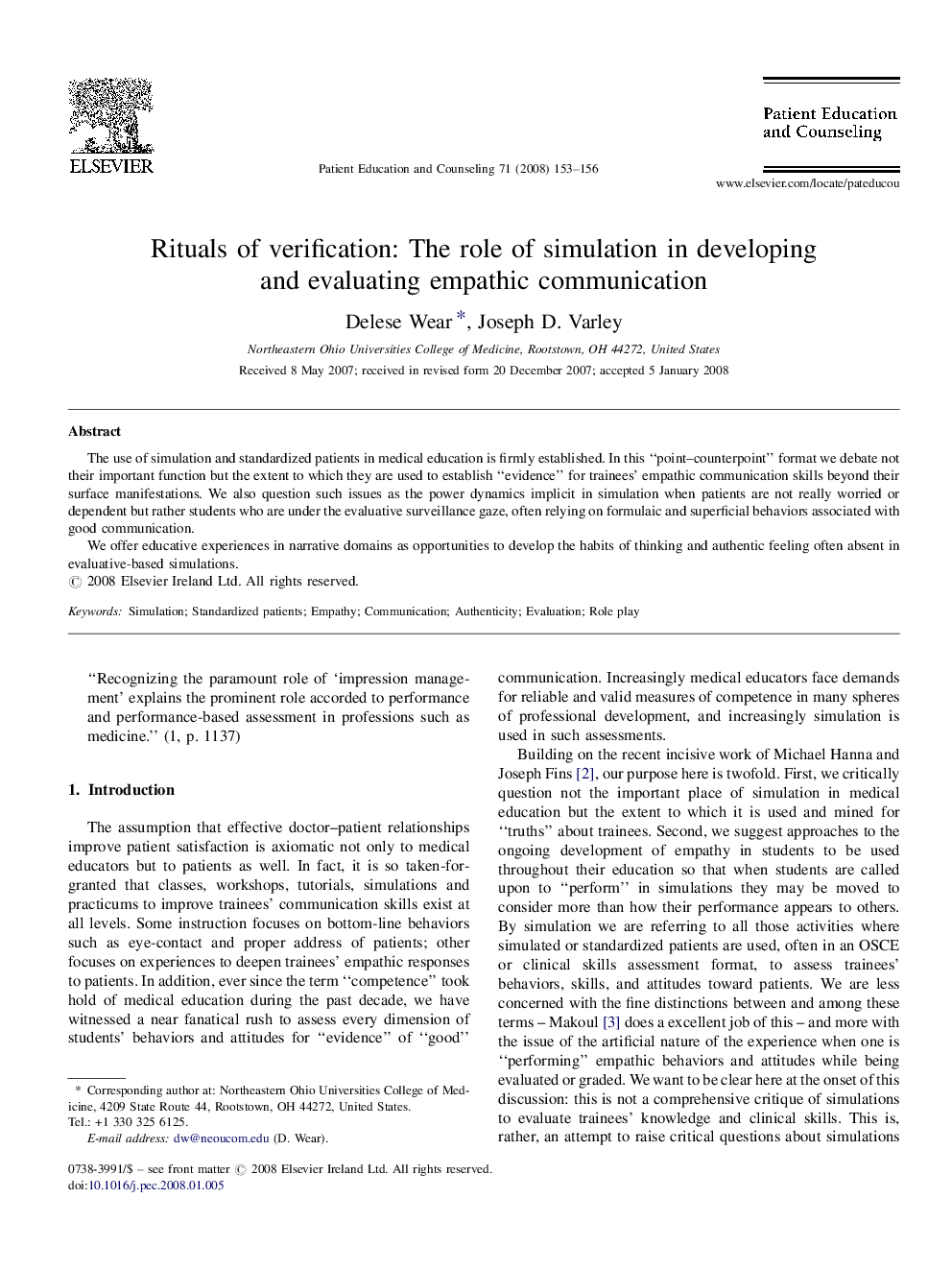| Article ID | Journal | Published Year | Pages | File Type |
|---|---|---|---|---|
| 3815200 | Patient Education and Counseling | 2008 | 4 Pages |
The use of simulation and standardized patients in medical education is firmly established. In this “point–counterpoint” format we debate not their important function but the extent to which they are used to establish “evidence” for trainees’ empathic communication skills beyond their surface manifestations. We also question such issues as the power dynamics implicit in simulation when patients are not really worried or dependent but rather students who are under the evaluative surveillance gaze, often relying on formulaic and superficial behaviors associated with good communication.We offer educative experiences in narrative domains as opportunities to develop the habits of thinking and authentic feeling often absent in evaluative-based simulations.
